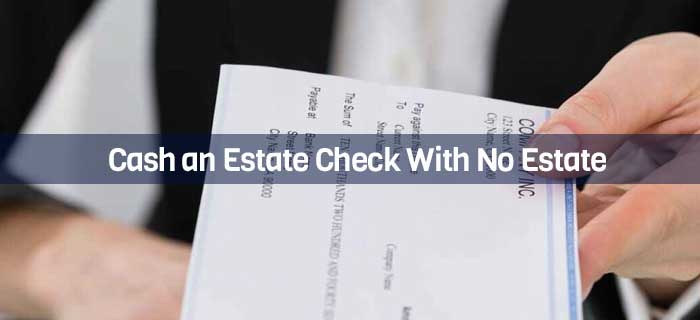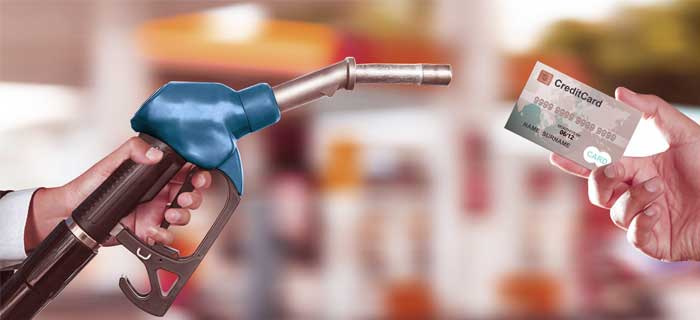The estate executor has the legal authority to manage the assets of the estate. In this regards, learning how to cash an estate check might be tricky for those who are new. The first step, however, is to open the best checking account and we will walk you through the rest of the procedure in simple words below!
- The only person who can handle the deceased finances is their executor. The administrator has to set up a checking account if the estate receives any payment.
- To open an estate account, you must have a copy of the death certificate, tax identification number, and proof that you are an estate representative.
- Several banks offer estate accounts which include Charles Schwab, Ally Bank, Chase, Citibank, Fidelity, KeyBank, and more.
…and Much More!
How To Cash an Estate Check?
Estate checks are typically the ones made out to a deceased person or the checks from the estate of a dead person. Processing estate checks requires much attention since everything must be handled legally.
The only person who can handle the deceased finances is their executor. Only they are allowed to endorse the check or deposit it as per the requirements like money order. Therefore, if the estate receives any sort of payment, the administrator has to set up a checking account.
Attention! This checking account must be opened in the official name of the estate and using that, the personal representative can then deposit the checks. The executor can endorse the estate check following the traditional method.
By signing on the given signature field, the executor can also mention themselves as Administrator of the Estate of (write deceased names). Once the representative endorses or deposits the check, the funds can then be distributed according to the deceased’s will.
Cashing an estate check is not allowed using a personal account or an account that uses ITIN, no matter whether you are the only beneficiary.
- Another condition that does not give you the right to cash the deceased’s check is even if you had a joint account with them.
There are certain conditions in which cashing a check can get quite burdensome. One of them is when the estate is either too small, or there does not exist any estate. Another condition can be when you receive the check after the estate closure. Under such circumstances, there is a certain set of rules you can opt for which we will be discussing further.
Method To Cash Check Where There is No Estate or a Small Estate Only
In this condition, you can contact the check’s payor directly and make them aware of the current situation. Make them aware of the fact that there is no estate account or it does not legally require probate.
- Following the legal procedure, the payor can then rewrite the check to you as you are the executor.
Only one person is eligible to have such authority and take care of the deceased’s affair. Therefore, it is important to fulfill all the legal procedures first to handle this job. If there is no estate or a small estate, some banks also facilitate you to cash a check with a small estate affidavit. However, unlike banks that don’t use Chexsystems, these banks may carry out detailed scrutiny.
Moreover, if you cannot open a checking account as per the legal requirement, you can cash a check using the death certificate. But this varies from one bank to the other, therefore, check with your bank or attorney to see how to go about this.
Method to Cash Check After Estate is Closed
When the person dies, it takes time before their legal accounts are closed and further actions are taken. As we know that all these processes are handled through the estate, but what to do if the state is closed?
- If by any chance, you receive the check after closing an estate, you will have to reopen it. Your respective bank may cater to you in this regard and negotiate the check after the estate closure. But only if the estate’s bank account is open.
It can also happen that you find both the estate and estate account closed. Here, you will have to require a court order directing for bank reopening to cash or deposit the check. Certain regulations are followed in every state for probate laws that you must be aware of.
- The decision of the court authorities related to the asset’s distribution can require a provision to distribute checks.
- Some of the state codes require strict provisions allowing the bank to pay out checks after the estate closure.
- Various other banks require reopening because of the discovery or receiving of new assets which may also include checks.
- Lastly, if you are still unsure about reopening the estate, it would be best to contact a probate lawyer. Once you are completely aware of the regulatory procedure, you can cash or deposit the check accordingly.
Attention! You can not just gather the assets without court approval. Contacting the local attorney is the safest option where you can learn the specific procedures and laws.
Extra Reading
How To Cash Outstanding Checks from a Deceased?
Outstanding checks are the ones that have been written but not yet cashed or deposited by the banks. The outstanding check can be both a business or a personal check.
It can happen at times that a person may write you a check and also die before you could cash it. Even under this condition, the check remains valid and can be cashed following legitimate laws and procedures.
All you need to do is take your check to the bank. Once there, head over to the staff and request them to deposit or cash your check. As long as all of your requirements are fulfilled the process can be completed quickly.
These include that your account has sufficient funds and the account also remains open. In addition, it would be best if you cash the check within 10 days after the death of the deceased. There are certain conditions under which your check may bounce back or remain unpaid. These include.
- If the executor has closed the account.
- Another instance could be if the executor moved the money.
- It can also happen if the bank freezes your account.
In this case, you can take the check to the executor and request them to write a new one. This should be from the estate account only to avoid the above problem again. It can also happen that there are more creditors than the money.
In this condition, you will have to file as a creditor with the court. The executor here only pays you after creditors that have higher claim rankings get their payments. This is how you can cash an outstanding check and the person died before you could cash it.
How to Open an Estate Account – Step by Step Guide
Opening an estate account requires a few legal documents although it is a normal bank account where you can open a checking account, deposit, or cash checks. It is yet known to be a temporary bank account and the executor can open a bank account here in the estate name.
- To open the estate account, you need to have a copy of the death certificate.
- Additionally, you must also have proof stating that you are an estate representative.
- Being an executor, you must apply for the employer identification number from the IRS.
- This tax identification number is required for the tax returns and other services.
- To get the employer identification number, fill out the form at the following link https://www.irs.gov/pub/irs-pdf/fss4.pdf.
- Once done, you have to submit it to the IRS then.
- It would be best if you have all the copies of your records to avoid any inconvenience.
Note! You cannot open a bank account online and you will have to visit the banks physically. It would be best if you visited the state branch where the deceased used to live.
Several banks allow you the facility of opening an estate account. Some of these include.
- Ally Bank
- Bank of America
- TCF Bank
- Bank of the West
- Chase
- Citibank
- BMO Harris Bank
- Charles Schwab
- U.S. Bank
- Wells Fargo
- Citizens Bank
- Comerica
- Flagstar Bank
- Huntington Bank
- KeyBank
- Navy Federal Credit Union
- TD Ameritrade
- TD Bank
- PNC
- Regions
The Bottom Line
Being an executor, you must responsibly gather all the assets of your descendant. Do not transfer any of the money to other investment accounts, let alone transfer to banks. You can then submit all the information starting from cash accounts and their values.
To cash the estate check, it is necessary that you open the checking account in the estate name. Do not perform any illegal acts since there is probate scrutinizing all the actions under the court supervision. Fulfill all the re-requisites to open an estate account and you are good to proceed.
Frequently Asked Questions
How to cash a check that has been given out to a deceased person?
You can cash a check made out to someone who has passed away but there is a complete legal procedure involved. You need to have an estate account, executor and other official involved to receive the money.
What types of checks does Walmart cash?
You can cash several checks at different shopping sites at Walmart including government checks, insurance settlement checks, payroll checks, tax refund checks, and more.
What are the document requirements for opening an estate account?
Typically, you would need to present death certificate, ID of the deceased, ID of the executor, power of attorney, proof of banking, letter or authority, etc. in order to open an estate account.

Jamie Johnson is very enthusiastic Kansas City – based freelance writer, and her core expertise are finance and insurance. She has been endorsed on several personal finance, insurance & business website to share her thoughts. Her publications can be found on famous sites like Bankrate, The Balance, Business Insider, Chamber of Commerce and many others.
From many years, she served more than 10,000 hours of research and writing to more than 2000 articles related to personal finance, credit building, mortgages, and personal and student loans.







